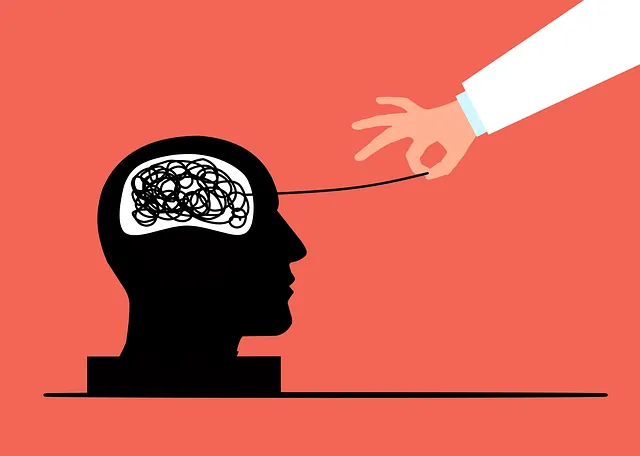Kaiser Permanente behavioral health providers in Littleton prioritize cultural competency to deliver equitable care and build strong patient-provider relationships, understanding diverse cultural backgrounds for enhanced clinical outcomes. They receive innovative training through interactive workshops, simulations, and case studies, focusing on trauma-informed care and mental wellness journaling exercises for provider well-being. In Littleton's multicultural setting, they foster inclusive environments, address unique mental health needs, and bridge healthcare barriers using programs like Self-Care Routine Development and Mental Wellness Coaching. Effective communication strategies, continuous learning, and empathy-building techniques ensure tailored, culturally sensitive care that improves patient satisfaction and outcomes.
Healthcare provider cultural competency training is an essential component of modern patient care, especially in diverse communities. This article explores the critical skills needed in healthcare settings, focusing on Kaiser Permanente’s innovative training programs for behavioral health providers. We delve into the impact of cultural sensitivity on patient care in Littleton, highlighting improved outcomes and stronger patient-provider connections. Additionally, we provide strategies for effective communication and continuous learning to ensure long-term competence among diverse healthcare professionals, particularly in the context of Kaiser Permanente behavioral health providers in Littleton.
- Understanding Cultural Competency in Healthcare: A Necessary Skill Set
- Kaiser Permanente's Approach to Training Behavioral Health Providers
- The Impact of Cultural Sensitivity on Patient Care in Littleton
- Strategies for Effective Communication and Connection with Diverse Patients
- Continuous Learning and Adaptation: Ensuring Long-Term Competence
Understanding Cultural Competency in Healthcare: A Necessary Skill Set

Cultural competency is an essential skill set for healthcare providers, especially those in behavioral health roles, like Kaiser Permanente behavioral health providers in Littleton. It involves understanding and respecting diverse cultural backgrounds, values, beliefs, and practices among patients and communities. In today’s diverse society, this competence ensures equitable care delivery, enhances patient-provider relationships, and improves clinical outcomes.
For mental healthcare professionals, cultural sensitivity is crucial when assessing risks and developing self-care routines. It enables them to provide culturally tailored interventions, address unconscious biases, and offer sensitive support to individuals from various ethnic, racial, and social backgrounds. This approach not only fosters better patient engagement but also contributes to reducing health disparities in mental healthcare services.
Kaiser Permanente's Approach to Training Behavioral Health Providers

Kaiser Permanente, a renowned healthcare organization, takes pride in its comprehensive approach to training behavioral health providers in Littleton and beyond. Their commitment to cultural competency lies in recognizing the diverse backgrounds and experiences of their workforce as a strength, fostering an environment where every provider feels empowered to offer exceptional care. The organization has designed innovative Mental Health Education Programs that go beyond traditional training methods. These programs incorporate interactive workshops, simulations, and real-life case studies to equip providers with the skills needed to navigate complex patient scenarios.
One unique aspect of Kaiser Permanente’s training is the emphasis on trauma-informed care. They offer specialized Trauma Support Services that educate providers about the impact of trauma on mental health and provide guidance on creating safe, supportive therapeutic environments. Additionally, they encourage self-care practices through Mental Wellness Journaling Exercises, believing that supporting the emotional well-being of healthcare providers is integral to delivering high-quality care.
The Impact of Cultural Sensitivity on Patient Care in Littleton

In Littleton, the impact of cultural sensitivity on patient care within institutions like Kaiser Permanente is profound. Behavioral health providers play a pivotal role in fostering inclusive and compassionate environments for diverse patient populations. By integrating cultural competency training, these providers can better understand and address unique mental health needs, breaking down barriers that often exist between healthcare services and marginalized communities. This approach not only enhances patient satisfaction but also improves outcomes, ensuring that everyone receives care tailored to their specific cultural background and experiences.
For example, Kaiser Permanente behavioral health providers in Littleton have implemented Mental Wellness Coaching Programs Development, incorporating Self-Care Routine Development for Better Mental Health as a core component. These initiatives aim to bridge the gap between traditional healthcare practices and the diverse mental health needs of Littleton’s multicultural population. Through ongoing training and awareness campaigns focused on Mental Health Awareness, providers are equipped to deliver more personalized and culturally sensitive care, thereby fostering stronger relationships with patients and promoting overall well-being in the community.
Strategies for Effective Communication and Connection with Diverse Patients

Effective communication with diverse patients is a cornerstone of quality healthcare. Kaiser Permanente behavioral health providers in Littleton recognize that understanding cultural nuances fosters better patient connections. Strategies such as active listening, open-ended questioning, and using culturally sensitive language create an environment where patients feel heard and respected. By incorporating compassion cultivation practices, mental health professionals can build trust and strengthen the therapeutic alliance, leading to improved treatment outcomes.
Incorporating self-care practices among behavioral health providers is essential for maintaining cultural competency. Regular reflection, supervision, and peer support ensure that healthcare workers remain empathetic and adaptable when engaging with patients from various backgrounds. Additionally, staying informed about mental health policy analysis and advocacy ensures that the services provided align with community needs and promote equitable access to care.
Continuous Learning and Adaptation: Ensuring Long-Term Competence

Healthcare provider cultural competency training requires a commitment to continuous learning and adaptation. This ongoing process ensures that Kaiser Permanente behavioral health providers in Littleton remain adept at navigating diverse patient backgrounds, needs, and perspectives. By embracing dynamic educational strategies, mental health professionals can stay updated on emerging cultural trends, refine their communication skills, and adapt evidence-based practices to be more inclusive.
Incorporating empathy building strategies, risk management planning for mental health professionals, and inner strength development into training curricula enhances the ability of healthcare providers to connect with patients from various cultures. These initiatives not only foster a more compassionate environment but also equip professionals with the tools needed to address unconscious biases, improve patient outcomes, and create a welcoming atmosphere that encourages open dialogue and trust.
Cultural competency training is a game-changer in healthcare, especially when focused on diverse patient populations. As highlighted by Kaiser Permanente’s innovative approach and the successful outcomes in Littleton, investing in education that fosters cultural sensitivity significantly improves patient care. By empowering behavioral health providers with effective communication strategies, organizations like Kaiser can ensure long-term positive impacts on diverse communities, ultimately enhancing overall public health.






